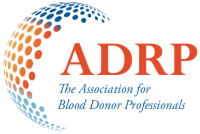Using competition for plasma donor recruitment and retention: An Australian university case study
Free reading access to article in link provided
Authors
Jack Bryant, Torres Woolley, Tarun Sen Gupta, Kathleen Chell
Abstract
Background and Objectives
Using evidence from one Australian university’s participation in the Vampire Cup (an 8-week national inter-university blood donation competition), this study aimed to (1) understand important motivators and successful promotional strategies driving engagement in the competition, and (2) determine the impact of competition on the recruitment and retention of young adult plasma donors.
Materials and Methods
We used a sequential explanatory mixed-methods design involving a self-administered survey (Study 1, n = 64) and four focus groups (Study 2, n = 20) with plasma donors aged 18–29 years who participated in the 2021 Vampire Cup. Also, we used a 12-month prospective comparative cohort analysis (Study 3) of those who did (n = 224 ‘competition donors’) and did not (n = 448 control group) present to donate for the Vampire Cup.
Results
Competition was a strong motivator, with 76% of survey participants donating to help their university win the Vampire Cup. The survey and focus groups suggested that successful engagement in the competition was due to peer-led recruitment, leveraging existing rivalries at both the inter- and intra-university level, and using prize draws to create an active online social community promoting blood donation. Competition donors donated plasma significantly more often during the competition but donated at similar rates after the competition, compared to the control group.
Conclusion
Rivalry-based competition strategies, combined with enthusiastic team leaders and an active social media community, can help to recruit, and retain, young adult plasma donors, and motivate an intermittent boost to donation frequency over a short period each year.
December 7, 2023
Related Resources
Engaging blood donors as advocates Social media preferences and associations with marketing
Background: Various critical medical procedures would become impossible without blood donations—saving lives in emergencies, surgeries, and chronic conditions like thalassemia. Therefore, it seems crucial to enhance donor recruitment and ensure…
Rethinking the role of older donors in a sustainable blood supply
INTRODUCTION Many countries, particularly high human development index countries, are facing the challenge of an aging population.1 For Blood Collection Agencies (BCAs) in these countries, an aging population poses two…


